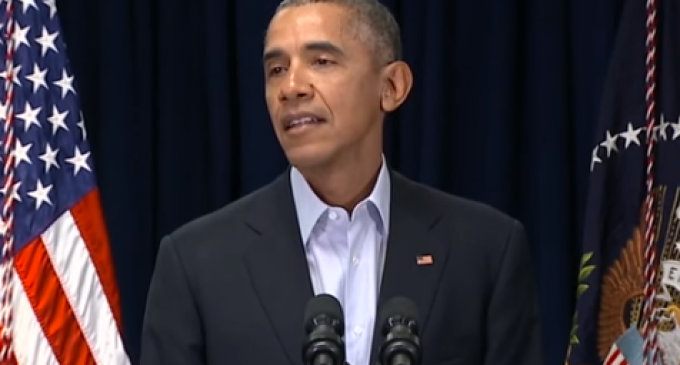
Justice Scalia lived a noble and compelling life as a family man, a religious man and one of the greatest minds ever to sit on the United State Supreme Court. His legacy is that of a Constitutional strict constructionist, seeking to hold to the letter of the law and unrestrained when chastising the Court for abuse of its Constitutional power.
Scalia penned his dissent in KING ET AL .v . BURWELL, SECRETARY OF HEALTH AND HUMAN SERVICES, ET AL, these words which encapsulate the brilliance of his mind, as well as his thoroughly correct understanding of the Supreme Court’s obligation to the people of the United States and the rules under which the Constitution has granted them power.
“This Court holds only the judicial power—the power to pronounce the law as Congress has enacted it. We lack the prerogative to repair laws that do not work out in practice, just as the people lack the ability to throw us out of office if they dislike the solutions we concoct. …
“Trying to make its judge-empowering approach seem respectful of congressional authority, the Court asserts that its decision merely ensures that the Affordable Care Act operates the way Congress ‘meant [it] to operate.’ … [T]he Court forgets that ours is a government of laws and not of men. That means we are governed by the terms of our laws, not by the unenacted will of our lawmakers. …
“Even less defensible, if possible, is the Court’s claim that its interpretive approach is justified because this Act ‘does not reflect the type of care and deliberation that one might expect of such significant legislation.’ … It is not our place to judge the quality of the care and deliberation that went into this or any other law. A law enacted by voice vote with no deliberation whatever is fully as binding upon us as one enacted after years of study, months of committee hearings, and weeks of debate. Much less is it our place to make everything come out right when Congress does not do its job properly. It is up to Congress to design its laws with care, and it is up to the people to hold them to account if they fail to carry out that responsibility.”
This is the man of integrity and intellect which Obama will be replacing. No one on the left can fill the shoes of Justice Scalia, for no one on the left demonstrates such honesty nor honor for the Constitution. Many liberals believe the Constitution, including Obama, is outdated and should be thrown out. Thus having such a man replaced by an appointment made by Obama is of grave import and deeply disconcerting for the nation.
Many on the right believe waiting until after the election is the right decision for the American people. This is obvious said with a deep faith that a Republican will win the White House, otherwise, we have the grim potential of a Bernie appointment or an Hillary appointment, both of which are as equally flawed as an Obama appointment would be.
What are the GOP leaders in Congress saying? Read their thoughts on the next page.

Impeach this$#%&!@*or he’ll end up in another position where he can continue undermining our basic rights and freedoms.
Why don, t you go home and rest and let God help us for awhile!
As long as it isn’t Barry Soetoro, I’m good.
Should have started impeachment process years ago
Sorry about Muslim boys luck Senate will not let the bastard fill the seat
Teen with someone who will$#%&!@*the people like he does
No, no, no.
Sen. Schumer in 2007: Senate Should Block SCOTUS Nominees for 18 Months
breitbart.com
.
During the 110th Congress, the Democratic leadership of the Senate specifically blocked Republican President George W. Bush from making any recess appointments with the use of pro forma session
Flashback: Senate Democrats in 1960 pass resolution against election-year Supreme Court recess appointments : top news Flashback: Senate Democrats in 1960 pass resolution against election-year Supreme Court recess appointments update daily
Thanks to a VC commenter, I discovered that in August 1960, the Democrat-controlled Senate passed a resolution, S.RES. 334, “Expressing the sense of the Senate that the president should not make recess appointments to the Supreme Court, except to prevent or end a breakdown in the administration of the Court’s business.” Each of President Eisenhower’s SCOTUS appointments had initially been a recess appointment who was later confirmed by the Senate, and the Democrats were apparently concerned that Ike would try to fill any last-minute vacancy that might arise with a recess appointment. Not surprisingly, the Republicans objected, insisting that the Court should have a full complement of Justices at all time. Of course, the partisan arguments will be exactly the opposite this time.
Get hosed